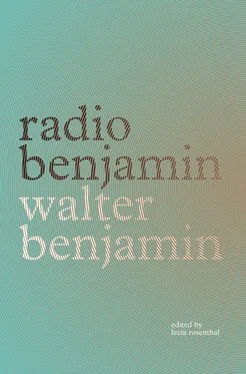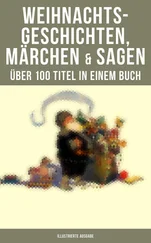Instead there is another sort of suspense, which we can best compare to what we feel when we see circus acrobats swinging on a trapeze, or jugglers balancing a whole stack of plates on a stick they perch on their nose. Actually, every Chinese actor must simultaneously be an acrobat and juggler and on top of that a dancer, singer, and fencer. You will understand why when I tell you that there are no sets in the Chinese theater. The actor not only has to play his role, but he must also act out the set. How does he do that? I will explain it to you. If he has to cross a threshold, for example, going through a door that is not there, he will lift his feet a little above the floor as though stepping over something. In contrast, slow steps while lifting his feet high, for example, indicate that he is going up a flight of stairs. Or if a general has to ascend a hill to observe a battle, then the actor who portrays him will climb on a chair. One can recognize a rider by the whip the actor holds in his hand. A mandarin being carried in a sedan-chair is portrayed by an actor who walks across the stage surrounded by four other actors, who walk with their backs bent, as if they were carrying a sedan chair. But if they suddenly make a jerky movement, it means that the mandarin has gotten down. Naturally, actors who have to be able to do so much have a long apprenticeship, usually almost seven years. During this time they learn not only singing, acrobatics, and all the rest but also the roles for about fifty plays, which they are expected to be able to perform at any time. This is necessary because it is rarely enough to perform just a single play. Instead, one scene is taken from one play, another from another, and they are all put together in a varied sequence, so that on a single evening there are often more than a dozen plays performed. On the other hand, a single play, if one wanted to perform it in its entirety, would often take two or three days, that’s how long they are. There are, however, some that are very short in which only one man performs, and I will now read you one of these. It is called “The Dream.” The speaker is an old man.
I would like to tell you a beautiful story. It is regrettable how unfair the sky is; it lets rain and snow fall down but no silver bars. Yesterday evening I was lying on my hearthside bed of clay; I tossed and turned and could not fall asleep. I lay awake from the first night-watch to the second and then again from the second until the third was sounded. As the third night-watch sounded, I had a dream. I dreamed of a treasure to the south of the village. So I took a spade and a hoe and went out into the field to dig up the treasure. I was really lucky; after a few strokes with the spade and hoe, I dug it up. I dug up a whole cellar of silver shoes; it was covered by a big mat of rushes. I lifted it up and looked under it. Oh, I had to laugh: there was a coral branch fifteen meters high, real red carnelian and white agate. Then I took seven to eight sacks of diamonds, six big baskets full of cat’s eye agates, thirty-three chiming clocks, sixty-four women’s watches, beautiful boots and caps, beautiful jackets and cloaks, beautiful new-fangled little bags, seventy-two gold bars and 33,333 silver shoes in addition. I had so much gold and silver, I didn’t know where I should put it. Should I buy land and build something to house it? But I was afraid of droughts and floods. Or should I open up a grain business? Then the mice could eat everything. Should I lend money and charge interest? There were no guarantors. Should I open up a pawn shop? I was afraid I would have to shell out money; what if the manager runs off with the money, where would I look for him? All those thousands of difficulties made me so irritated, I woke up from the irritation: it was only a dream! I had groped around the hearthside bed with both hands; while doing so I had touched the lighter — that was the silver shoes! Then I had touched the brass pipe: that was the gold bars! After groping here and there for quite a while, I came across a big scorpion with a green head, and it stung me so that I howled loudly. 2
Of course, it is only the most superb actors who appear alone in front of the audience in such small plays. The reputation of such actors is immense. Wherever they appear, they are received with the greatest honor. Wealthy businessmen or officials frequently invite them with their troupe to perform in their houses. And yet probably no European artist would want to trade places with them. So great is the ambition and passion of Chinese actors that the acknowledged masters among them live in continual fear of the attacks that jealous rivals plan against them. It’s impossible to tempt an actor or an actress to ingest the smallest morsel outside of their apartment. They are convinced that the slightest inattentiveness could turn them into the victim of a poisoning. The tea they drink during the performance is purchased secretly and in a different store every time. The water it is boiled with is brought in their own teakettle from home, and only one of their entourage is allowed to make it. The great stars would never think of performing if their own bandmaster was not conducting, because they are afraid of the malice of their rivals, who could set traps for them during the performance by faulty conducting or misleading movements. The audience pays hellishly close attention, and dishes out scorn and mockery at the smallest gaffe. And they are not above throwing teacups at the artists if they are not satisfied with their achievements.
Now, the fire that I want to tell you about on this occasion was the biggest theater fire of all time. It happened in Canton on May 25, 1845. The theater was built, as was common, of bamboo posts interwoven with mats. It had been built for the special celebratory performance in honor of the war god Guan Yu. The performance was supposed to last two days. The theater stood in the middle of a great square among hundreds of similar but much smaller stalls. It held 3,000 people. On the afternoon of the second day, when everything was overcrowded, the stage was supposed to represent a temple of the war god. But because, as I have already explained, there are no sets in China, this was only identifiable because of a sacrificial fire that flickered in the middle of the stage. Then an actor left one of the two doors in the background open as he exited, and a strong gust of wind swept inside the theater, causing a pair of mats lying near the fire on stage to ignite. In the blink of an eye, the whole stage was in flames, and a few minutes later the fire had engulfed the entire structure. Now, the terrible thing was that in the whole theater there was only one single exit. Whoever just happened to be near it could save themselves; whoever sat closer to the front was lost. Hardly had a few hundred people reached the open air when the door began to burn. In vain they tried to douse it with hoses and water buckets. After a quarter of an hour had passed, it was impossible to get near the center of the fire because of the heat, and thus more than 2,000 people perished.
The European who hears about such things naturally thinks with pride and satisfaction about his own great stone theaters, which are under the strict supervision of the building control departments, in which there are firemen present at every performance, and where everything is done for the safety of the spectators. If there was ever a disaster at some point, it would hardly take the same terrible form, even if only because our theaters hold far fewer spectators. But that’s just it: in China all big events, whether work or celebrations, are tailored for enormous masses of people. And the feeling of being one of the masses is much stronger in the Chinese than it can ever be in the European people. Hence the humility, unimaginable to us, that is the main virtue of the Chinese and in no way implies low self-esteem; rather it is simply the constant awareness of the enormous size of the mass of people they belong to. This humility has a strong foundation in the rules for living and educational books of their great wise men Confucius and Lao Tzu, where it is cloaked in very particular codes of conduct that everyone can learn and understand. And at the same time, these great teachers of the Chinese, by instructing their fellow citizens in this humility, have taught them to act in such a way that they make the life of the great mass they belong to easier; they have instilled in them enormous respect for the state and especially for civil servants, whom we must not imagine to be like European civil servants. The exams that the Chinese civil servants take require not only specialized knowledge, such as our exams require, but also close familiarity with the whole corpus of poetry and literature, and especially the wise men’s instructions I spoke about. One might go so far as to say that it is these convictions of the Chinese that make their theaters so shabby and such fire hazards. At least that is what a Chinese man with whom I once discussed these matters told me:
Читать дальше












